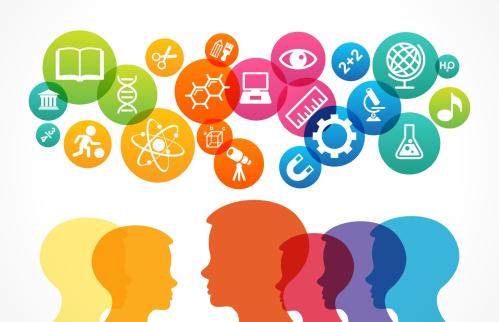Although the educational attainment gender gap has improved significantly in recent years with only a 4.8% gap left globally, women’s access to economic, social, and cultural rights continues to lag behind that of men. Structural barriers, such as harmful social norms and gender stereotypes, unpaid care work, and the lack of support networks, prevent many women from participating equally in the economy. These inequalities translate into reduced autonomy, affecting in general women’s agency and ability to exercise other human rights. Moreover, these issues disproportionally affect women with other intersectional inequalities, such as age, poverty, disability, ethnicity, or race, among others.
Mexico provides a clear example of the ways in which gender inequality can persist despite women’s advancement in education. According to official data in 2020, young women (20-29 years old) in Mexico have surpassed men in years of educational attainment. Women also work about six more hours than men, but most of this time is unpaid. But these higher levels of education and labor have not translated into equal economic and social rewards for women in Mexico. Mexico’s puzzling case needs to be further investigated and understood through the lens of these inequalities to find ways to fulfill the promise of education for young women to thrive.
How to fulfill the promise of education for young women in Mexico?
For more than 15 years, I have dedicated my career to promoting gender equality and social mobility by empowering women through education and economic opportunity in Mexico. As co-founder and co-director of ProSociedad, a development organization based in Guadalajara, I have collaborated with CSOs, local governments, international organizations, and the private sector on evidence-based education and poverty reduction initiatives.
This experience led me to create Co-meta, an innovative collective impact initiative to promote the adoption of second-chance gender transformative education (GT-SCE) programs for women in Jalisco, Mexico and beyond. Together with key allies, such as UN Women Second Chance Education Program, who share our mission to scale and expand opportunities for women globally through collaborative and systemic approaches, we have promoted the adoption of GT-SCE programs by local governments, and together improve women’s economic autonomy and life outcomes.
GT-SCE holds the potential to accelerate gender equality for women in Mexico who are left behind. These programs are designed to provide individuals, particularly marginalized women, with the opportunity to begin or continue their learning pathways and development after having been pushed out of formal education and/or sidelined in care or other unpaid, informal, or precarious economic activities. GT-SCE focuses both on life and technical skills and addressing the underlying social norms and gender inequalities that impede young women’s improved life outcomes. By integrating gender-sensitive approaches, these programs enable participants’ agency and decision making to challenge societal stereotypes, improve their economic prospects, and enhance their overall wellbeing, ultimately promoting greater gender equality in their communities.
To make the promise of education true for young women in Mexico, we need a gender transformative approach to second-chance education programs, especially for women who face intersectional inequalities.
Mexico has made significant efforts and investments to promote young women’s employment through second-chance education programs and other related interventions. At the Federal level alone in 2019 there existed 12 programs with goals related to promoting youth employability. However, these programs lack a gender transformative lens and operate in “silos”, rather than in a holistic and systemic approach.
As a 2024 Echidna Global Scholar at the Brookings Institution, I will explore how to accelerate the adoption of gender transformative and holistic approaches to existing second-chance education programs in Mexico. By studying the Co-meta program in Jalisco, Mexico, my research will focus on understanding how policymakers make decisions around the design, implementation and evaluation of existing second-chance programs. I will identify successful mechanisms for these interventions to be innovated and to incorporate a gender-transformative and holistic approach, to ensure they serve the specific needs of young, marginalized women.
The study will culminate in a policy brief with practical mechanisms for promoting the scalability of gender transformative and holistic approaches to second-chance education, highlighting problems while identifying pathways to progress. My work at the Center for Universal Education (CUE) at Brookings seeks to build upon broader policy discussions on scaling impact in education and accelerate the advancement gender equality globally.
Making education work for young women’s success is not just a matter of fairness, it is essential for global prosperity and inclusive economic growth. As an Echidna Global Scholar, I am committed to working toward a future where gender equality is a reality, not a distant dream. Through research, policy and collective impact we can make the promise of “education = thriving” true for all.




Commentary
How education fails young women in Mexico and what we can do about it
September 10, 2024